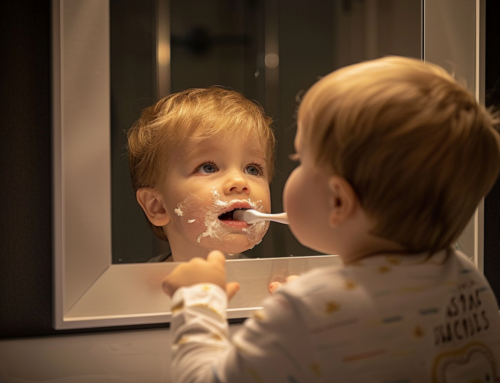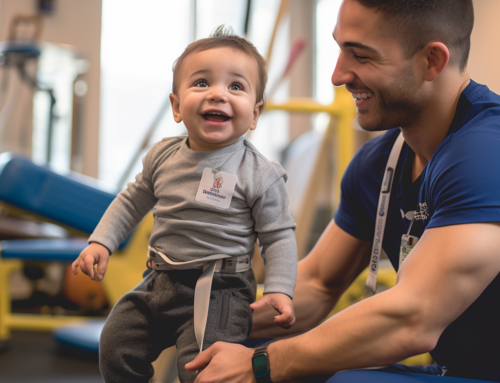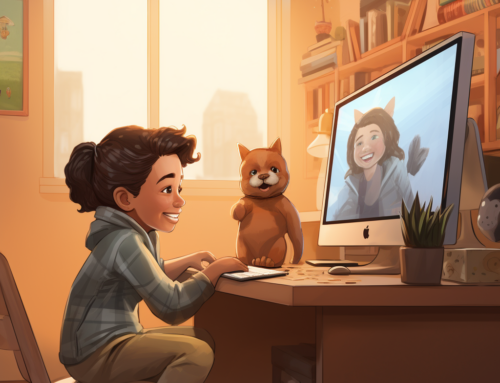Have you ever noticed your child reacting differently to certain sights, sounds, smells, touches, or tastes than other children?
Perhaps they cry at the sound of a vacuum cleaner, seem oblivious to pain, or become overwhelmed in crowded places.
These reactions could be signs of sensory processing disorder (SPD), a condition that affects how the brain interprets and responds to sensory information.
At Kutest Kids, we understand that SPD can be challenging for both children and their families.
That’s why we offer exceptional occupational therapy (OT) services designed to help your child overcome these challenges and thrive.
Understanding Sensory Processing Disorder
Sensory processing disorder is not a disease, but rather a difference in how the brain processes sensory information from the environment. This can manifest in various ways, depending on the type of SPD:
- Oversensitivity (hypersensitivity): Children with this type may be overly sensitive to certain stimuli, such as loud noises, bright lights, or rough textures. They might find these experiences overwhelming and unpleasant.
- Under-sensitivity (hyposensitivity): Children with under-sensitivity may not register certain sensory information as strongly as others. For example, they might not feel pain as readily or might seem unaware of their body position in space.
- Sensory seeking: Some children actively seek out sensory input, often engaging in repetitive behaviors such as rocking, spinning, or chewing on objects. This helps them feel more regulated and organized.
- Sensory avoiding: Conversely, children who avoid sensory experiences might withdraw from situations that involve certain types of stimuli. This could be due to feeling overwhelmed or uncomfortable.
It’s important to note that SPD can co-occur with other conditions like autism spectrum disorder (ASD) and attention deficit hyperactivity disorder (ADHD). However, SPD is a distinct diagnosis and can also occur on its own.
How Can Occupational Therapy Help?
If you suspect your child might have SPD, consulting with a healthcare professional is crucial. Early intervention through occupational therapy can significantly improve your child’s quality of life and help them reach their full potential.
At Kutest Kids, our occupational therapists utilize sensory integration therapy (SIT). This approach aims to help the brain organize and interpret sensory information more effectively, leading to appropriate responses to various stimuli.
The OT assessment process involves a comprehensive evaluation of your child’s sensory processing abilities, daily routines, and challenges.
This includes observations, interviews with parents and caregivers, and potentially standardized tests. Based on this assessment, our therapists create an individualized treatment plan tailored to your child’s specific needs and preferences.
What to Expect During Occupational Therapy Sessions at Kutest Kids
Say goodbye to sterile treatment rooms!
At Kutest Kids, OT sessions are anything but boring.
We transform therapy into a fun and engaging experience filled with playful activities and techniques. Here’s a glimpse into what your child might encounter:
- Sensory activities: This could involve activities like swinging, using weighted vests, playing with different textures to encourage exploration and desensitization, or engaging in calming sensory experiences like listening to soothing music or creating calming sensory bottles.
- Motor activities: These activities help improve coordination, balance, and proprioception (body awareness) and can include obstacle courses, yoga, or specific exercises designed to address your child’s individual needs.
- Self-regulation strategies: Equipping your child with tools to manage their sensory responses is crucial. Our therapists teach them calming techniques like deep breathing, mindfulness exercises, and progressive muscle relaxation.
It’s important to remember that every child is unique, and their OT journey will be too.
Our experienced therapists ensure a personalized approach, adapting activities and techniques to match your child’s interests, strengths, and learning pace.
Benefits of Occupational Therapy for Children with SPD
The benefits of occupational therapy for children with SPD are numerous and can significantly impact their lives:
- Improved sensory processing and regulation: Through SIT, children learn to manage their sensory responses, becoming less overwhelmed by certain stimuli and more aware of others.
- Enhanced self-awareness and body awareness: OT activities help children develop a better understanding of their bodies and how they interact with the environment, improving their coordination and balance.
- Increased participation in daily activities and routines: With improved sensory processing and self-regulation skills, children can engage more actively in daily activities like dressing, eating, and interacting with others.
- Improved social interaction and communication skills: By managing their sensory sensitivities and developing self-regulation skills, children can effectively participate in social situations, enhancing their communication and interaction with peers and adults.
- Reduced anxiety and frustration: As children gain control over their sensory responses, they experience less anxiety and frustration related to sensory challenges, leading to increased calmness and well-being.
Getting Started with Occupational Therapy at Kutest Kids
If you’re concerned about your child’s sensory processing, getting them the support they need is crucial.
At Kutest Kids, we understand this, and starting their OT journey is easy.
Simply reach out to us to schedule a free consultation with one of our experienced occupational therapists.
During this consultation, you can discuss your child’s challenges in detail, ask any questions you may have, and learn more about how our OT program can benefit your child.
Our therapists are passionate about helping children with SPD reach their full potential.
They possess extensive training and experience in providing individualized therapy plans, utilizing evidence-based practices, and collaborating closely with families to ensure seamless continuity of care.
We believe in fostering a collaborative environment where parents and caregivers are actively involved in their child’s therapy journey.
We provide ongoing communication and progress reports, keeping you informed and empowered to support your child’s development at home.
Conclusion
Sensory processing disorder can be challenging, but with early intervention and the right support, children with SPD can overcome these challenges and thrive.
At Kutest Kids, we are dedicated to providing your child with the best possible care through our exceptional occupational therapy services.
We believe in the power of play and personalized therapy to help children with SPD build the skills they need to succeed in all aspects of their lives.
Don’t wait any longer. Contact Kutest Kids today and schedule a free consultation to learn how we can help your child reach their full potential and embrace a brighter future.
Together, we can help your child thrive!




